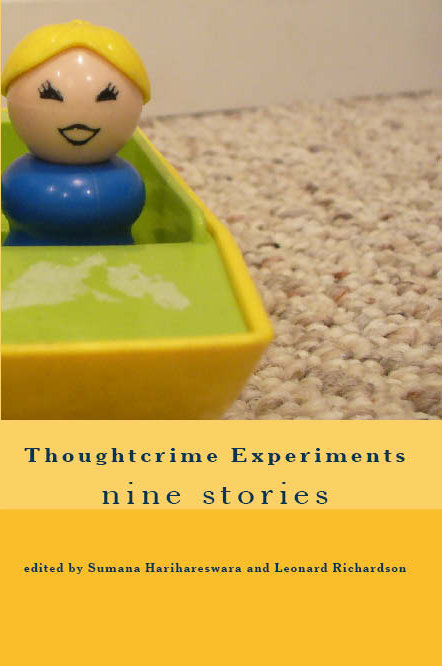Cosmic rays can flip bits in memory cells or processor datapaths. Once upon a time, Sudhakar and I asked the question, “can an attacker exploit rare and random bit-flips to bypass a programming-language’s type protections and thereby break out of the Java sandbox?”
A recently published science-fiction anthology Thoughtcrime Experiments contains a story, “Single-Bit Error” inspired by our research paper. What if you could use cosmic-ray bit flips in neurons to bypass the “type protections” of human rationality?
In addition to 9 stories and 6 original illustrations, the anthology is interesting for another reason. It’s an experiment in do-it-yourself paying-the-artists high-editorial-standards open-source Creative-Commons print-on-demand publishing. Theorists like Yochai Benkler and others have explained that production costs attributable to communications and coordination have been reduced down into the noise by the Internet, and that this enables “peer production” that was not possible back in the 19th and 20th centuries. Now the Appendix to Thoughtcrime Experiments explains how to edit and produce your own anthology, complete with a sample publication contract.
It’s not all honey and roses, of course. The authors got paid, but the editors didn’t! The Appendix presents data on how many hours they spent “for free”. In addition, if you look closely, you’ll see that the way the authors got paid is that the editors spent their own money.
Still, part of the new theory of open-source peer-production asks questions like, “What motivates people to produce technical or artistic works? What mechanisms do they use to organize this work? What is the quality of the work produced, and how does it contribute to society? What are the legal frameworks that will encourage such work?” This anthology and its appendix provide an interesting datapoint for the theorists.


sorry for dupe
I think it is Okay, no need to be sorry.
Peter H
I love SF like this
The whole bit about ‘open source peer production’ has been done informally for over a century. Just take a look at the concept of an amateur press association